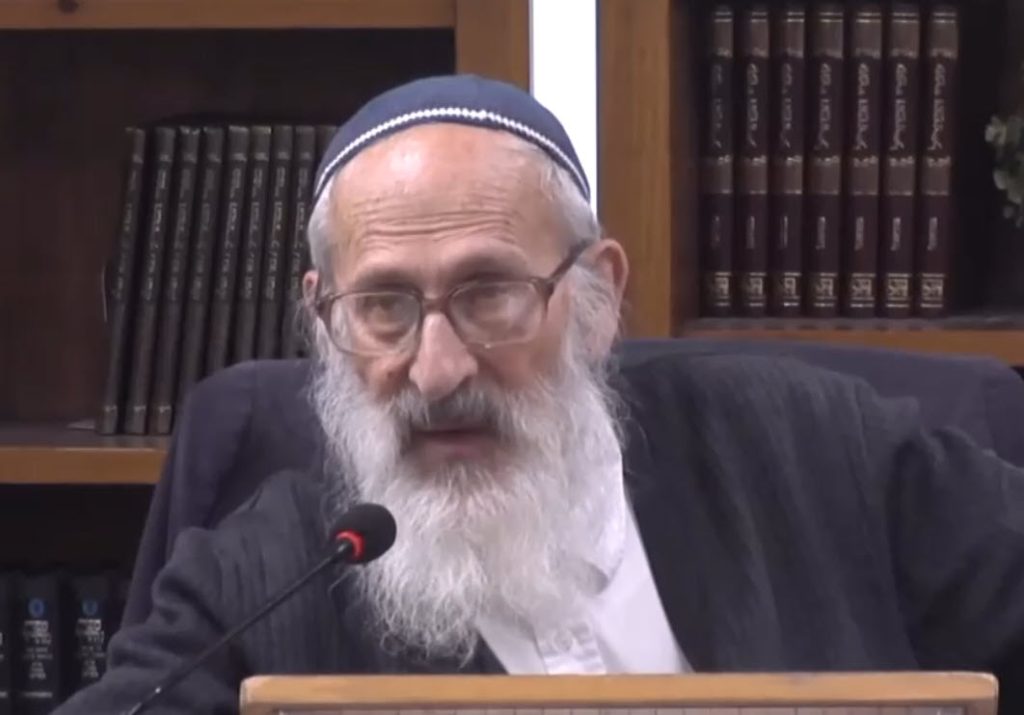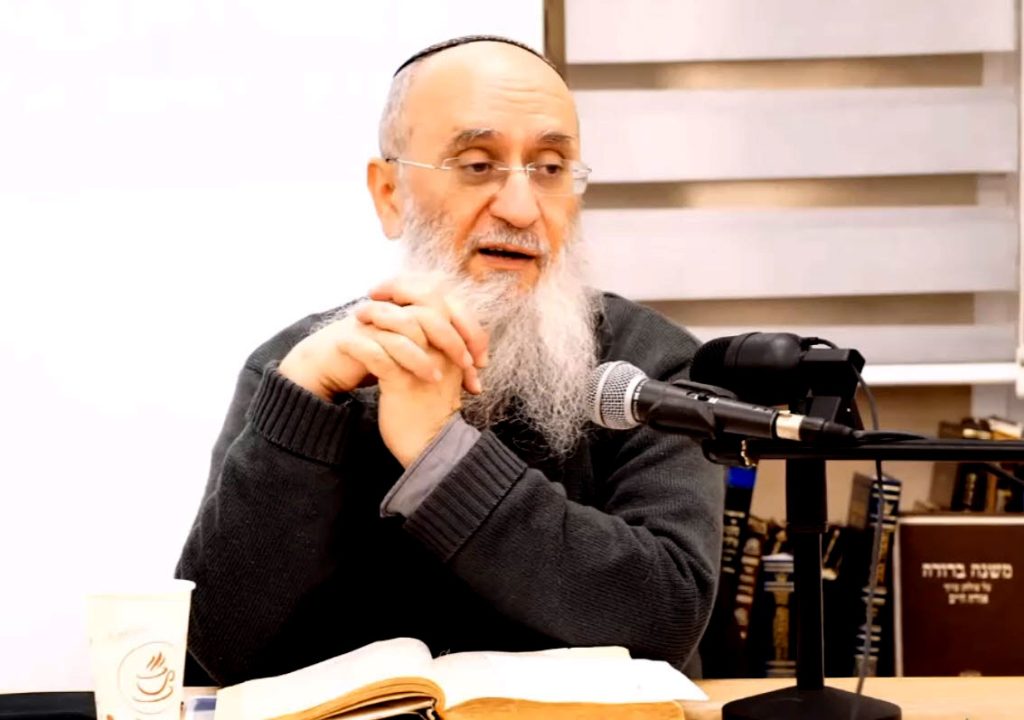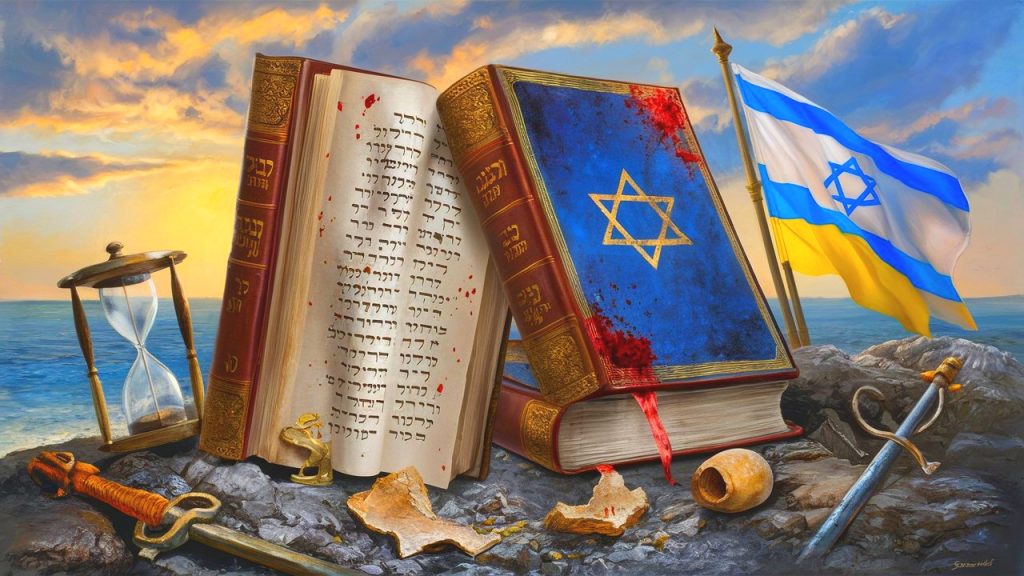"Ukrainian Shabbat" in Israel: Jewish religious memory and the war in Ukraine
We meet "Queen of Shabbat" to the tunes of Sephardic Jews in the small synagogue of our newly constructed subdivision with a view of Mount Carmel. I ask a neighbor (his name is Asaf, and our daughters go to the same kindergarten), "By the way, are you Ashkenazi or Sephardic?". He says he is Ashkenazi.
"And where are your roots from?"
"From Germany." — Or rather? — "From Austria-Hungary." — Or rather? — "From Galicia, now it's Ukraine."
Ukraine comes up again when I see the main photo on the cover of a religious newsletter: "The Arch of Torah scrolls of a synagogue in Kherson, Ukraine."
On the morning of Shabbat, a familiar Hassid of Chabad approaches me with a sly smile: "Well, how are things in the city of Kharkov? I heard the city is no longer there after the Russian shelling." I understand that he does not want to offend me because he knows how I feel about the shelling of the city of my childhood. So, he's joking.
"Kharkov no longer exists, it was erased. Only Kharkiv remains," he finishes his jest. They said that due to rocket attacks on the city, there is no Kharkov in the Russian version, but only the Ukrainian Kharkiv remains.
I say to him sarcastically: "Wow, this is a very deep thought. I will pass it on to Kharkiv rabbi Moishe Moskovych — he will be delighted to hear this joke under Russian fire."
This is the special Shabbat of May when we bless the new Jewish month of Sivan. This means we do not read the mourning insert "Av ha-Rahamim" ("Father of Mercy") about the Jews who died for the sanctification of the Name of the Creator since the positive factor (the new moon) pushes away the sad factor.
"But suddenly, everyone starts reading a specific text. Why — It doesn't need to be read!" I ask.
Rabbi Shaul Elituv, a classmate of the Kharkiv rabbi, answers me with a wise half-smile. "Only for the month of Sivan, the mourning hymn becomes 'stronger' than the new moon."
"But why?"
"Biglal Khamelnitski ("because of Khmelnytsky"). Do you know of him?" asks the rabbi. — "Yes, I even saw his statue in Kyiv," I answer. — "Oh!" — the rabbi responds respectfully.
This is forever embedded in Jewish memory, this rabbi wants to tell me. The month of Sivan is the end of May/mid-June 1648, the peak of the bloody Jewish pogroms during the Khmelnytsky Cossack uprising.
But Rabbi Elituv is right and wrong at the same time. The mourning text before the beginning of the month of Sivan actually first appeared in the 12th century — in memory of the pogroms of the Jews of the Rhine region during the first Crusades. It was only later, in the 17th century, that the pogroms of Jews during Khmelnytsky's reign took place, albeit on the same days.
A similar situation occurred with the Jewish fast on the 20th of Sivan. Initially, it appeared because on this day in 1171 in the French city of Blois, 30 Jews were burned on false charges by the verdict of a Christian court. On the same day in 1648 (May 31 or June 10, according to different calendars), a massacre of Nemyriv Jews took place in Ukraine — after the capture of the city by the Cossacks.
Since that time, both the mourning, beginning on the month of Sivan, and the fast of the 20th of Sivan have been incorporated into Jewish prayer books and Jewish memory.
It must be stressed, however, that the fast of the 20th of Sivan is little known and has a "regional" character — it is observed only by certain Jewish communities of Eastern Europe and their descendants in Israel.
What can be done when the tragedies of the past have been crowned in the Jewish religious matrix and entered into the prayer books almost 400 years ago? It is almost impossible to change.
But something else is possible: remembering the past without idealization, realizing the present as a completely different historical era, and not transferring the sins and blood of the 17th century to the people of the 21st century. To see new generations of Ukrainians who aspire to a free life on their land.
This is exactly the choice on the side of Good and support of Ukraine made by a significant majority of the Jewish people both in Israel and in the global Jewish diaspora after the beginning of the Russian invasion of Ukraine in 2022. They chose various methods and degrees of support for the Ukrainian people during the terrible war.
After the start of Russia's full-scale aggression, I listened to opposing opinions of Israeli rabbis on YouTube about the war in Ukraine. These different views were most vividly revealed in the video lectures of two spiritual authorities of religious Zionism.
Rabbi Shlomo Avineri said: "Ukrainians are the biggest antisemites in Europe, who have committed the most terrible atrocities against Jews since the time of Bohdan Khmelnytsky. The mills of God turn slowly, but they grind finely. The modern war against Ukraine is retribution for the crimes of the past."

He was categorically rebutted by Rabbi Uri Sherki: "In this war, the villains are Russia and the terrible Putin regime. Jewish tradition teaches that one cannot judge one's descendants for what their ancestors did unless the descendants follow the same criminal path. I have been to Ukraine many times. I talked with people, and I assure you that this is a completely different generation. None of them are going to kill Jews."

All these discussions among the rabbis of Israel about the degree of "guilt" of Ukraine that appeared in mass media in the last days of February and in March 2022, abruptly stopped in the first days of April 2022 — because the terrible facts of the mass murder of Ukrainian residents of Bucha near Kyiv became known.
While Putin's criminal regime seeks to destroy the Ukrainian nation, Ukrainian cities and everything Ukrainian, the majority of Jews in Israel, the Jewish communities of Europe and North America have stood by Ukraine for the third year — finding the strength to sympathize, not forgetting the past and thinking about the future.
It is precisely this sympathy for Ukraine that I constantly meet from acquaintances in our synagogue and from many Israelis who are interested in the situation on the front and are horrified by the barbaric destruction and killings of civilians in Ukraine.
The duty to remember the horrors of the past along with the ability to empathize with the modern tragedy of Ukrainians and support Ukraine on a global scale — this great dignity of the Judaism of our era has become a true Jewish moral choice on the side of Good in the war against Evil.
Text and collage on the theme of Ukrainian-Jewish historical memory (created using Artificial Intelligence): Shimon Briman (Israel).




















